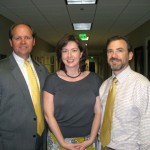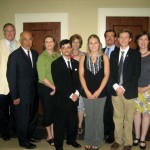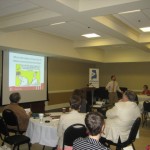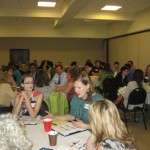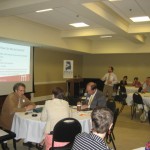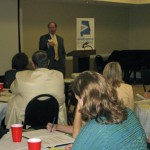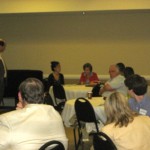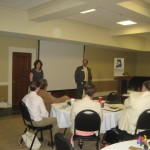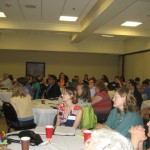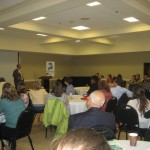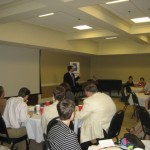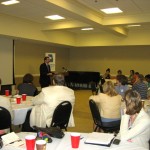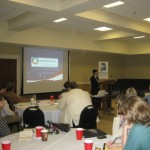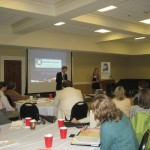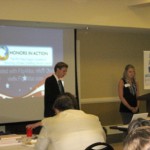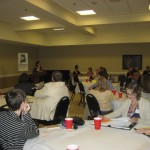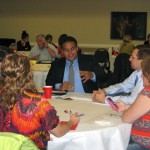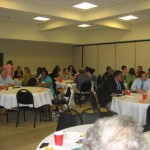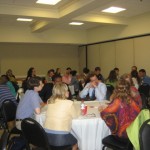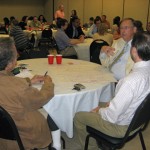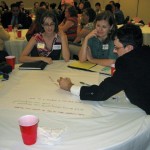July 25th, 2013
On July 23, over 70 higher education faculty, staff, students, and community partners gathered at APP’s Birmingham office for our Summer Higher Education Alliance Workshop, “Trying Hard is Not Good Enough: What Measurement Means for Service-Learning Programs and Nonprofit Agencies.”
Dr. Paul Matthews, Assistant Director of the University of Georgia’s Office of Service-Learning, opened the workshop with a presentation on assessing outcomes in community-based partnerships. He highlighted the importance of detailed outcome assessment methods and shared resources on service-learning outcome measurement with participants.
Paul was followed by Keynote Speaker Drew Langloh, President and CEO of United Way of Central Alabama. Drew spoke on the need for collective action and shared measurement in community programs and partnerships. He noted, “The best collaboration is to have a common agenda. While each organization’s agenda may be slightly different,” Drew explained, “these agendas start intersecting in big chunks.”
After lunch, Ryan Hankins, Executive Director of M-Power Ministries, spoke about reframing the nonprofit sector and redefining goals. He challenged participants to remember what they set out to do and take time to “get off the treadmill to see if our work is actually working.” He also spoke of the need to educate service-learning students about the systemic complexities of poverty.
Then Jeff Patterson, Alabama Region President of Phi Theta Kappa Honor Society, explained the Honors in Action process. APP Cornerstone Member Northwest-Shoals Community College Honors students Aeriel Hood and Marshell Burrell presented a project on the culture of competition and the role of immigration in Alabama’s economy.
To close the workshop, Janna Pennington, Director of Student Leadership and Community Engagement at APP Cornerstone Member Samford University led a reflection of the day’s events. Several themes emerged, including the importance of collaborating and building relationships with community partners, creating sustainable programs, and engaging service-learning students.
As participant Larry Lee noted, “It’s not a lack of resources, it’s a lack of collaboration of resources.”
Guest post by APP Intern Anna Patterson
